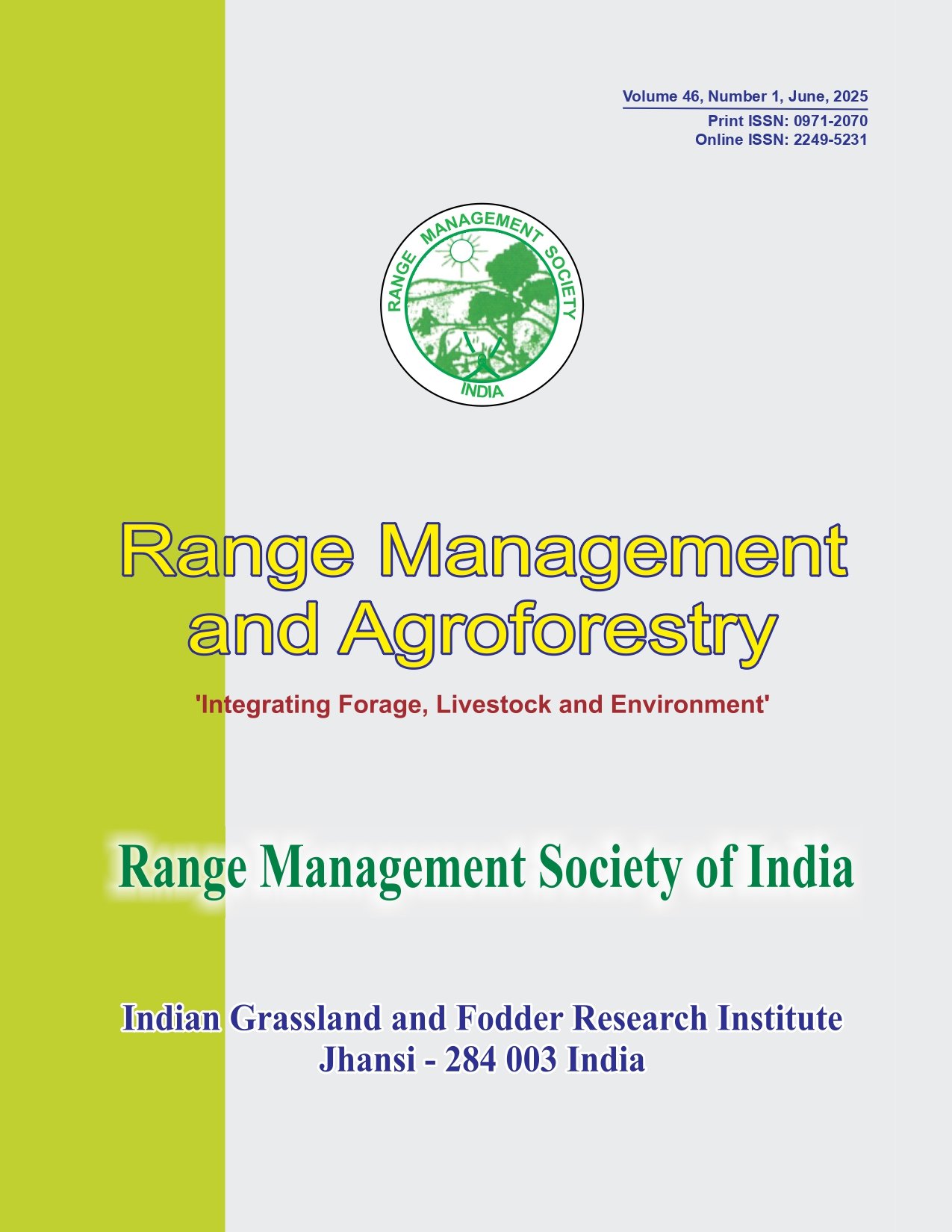Socio-cultural perceptions of communal farmers towards rangeland degradation in selected localities of South Africa
Keywords:
Bush encroachment, Land use, Semi-arid, Subsistence farming, Vegetation conditionAbstract
Understanding the perceptions of communal farmers towards rangeland degradation is critical in the design of sustainable and acceptable management strategies. The objective of the study was to gain understanding of the local knowledge base and perceptions on rangeland degradation in selected semi-arid areas of South Africa. In order to achieve this objective a structured questionnaire was administered to 123 randomly selected communal farmers from purposefully three selected villages (Ramatlabama, Loporung and Makgobistad). Microsoft Excel and SPSS were employed for statistical analysis. Structured questionnaire containing open-ended questions were used. Results of the study indicated that farmers from the selected villages expressed different views concerning the condition of the veld. In Ramatlabama, farmers rated rangeland vegetation condition varied widely as poor (25.9%), fair (48.1%), good (11.1%), and excellent (14.8%). In Makgobistad, farmers rated rangeland vegetation condition varied widely as poor (44.4%), fair (33.3 %), good (18.5%) and excellent (3.7%). In Loporung, farmers rated rangeland vegetation condition varied widely as poor (28.5%), fair (26.2%) good (26.2%) and excellent (19%). Furthermore, rangeland degradation was attributed to lack of knowledge of appropriate management practices among rangeland users. Farmers keep large numbers of animals on the rangelands thus exacerbating rangeland degradation. Farmers agreed that reduction in livestock numbers, introducing watering points and controlling bush encroachment are best practices to mitigate land degradation. However, despite this new-found knowledge, some farmers were still not keen to implement mitigating strategies such as selling animals during the dry season to reduce stocking rate. The challenge of over grazing in these areas can be resolved by involving rangeland users in the identification of acceptable, easy-to-apply technologies that can mitigate undesirable effects of grazing.




